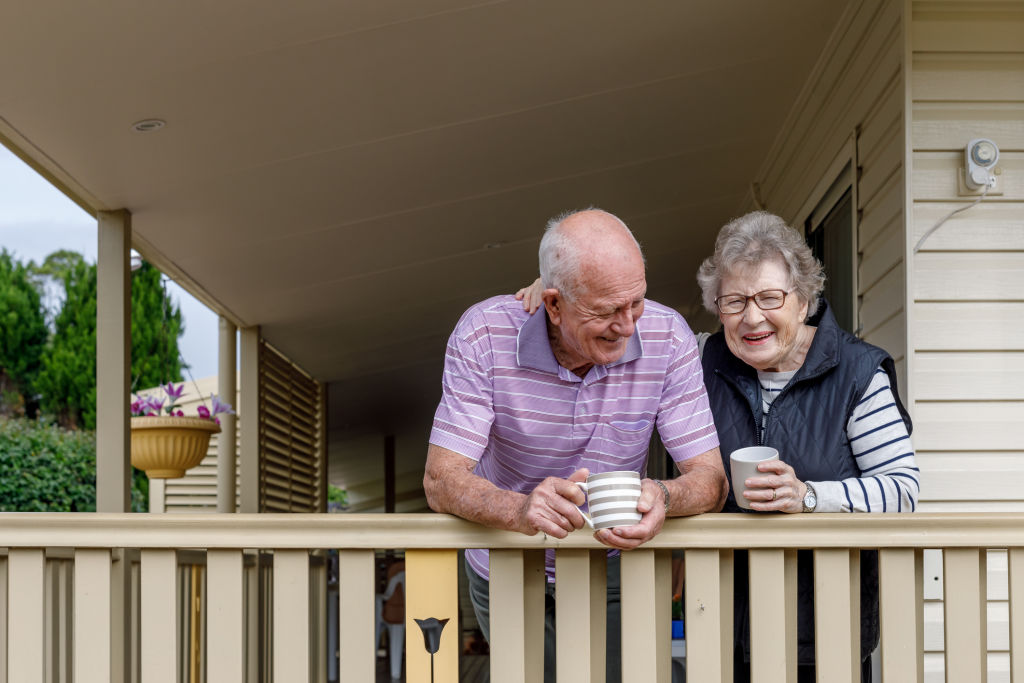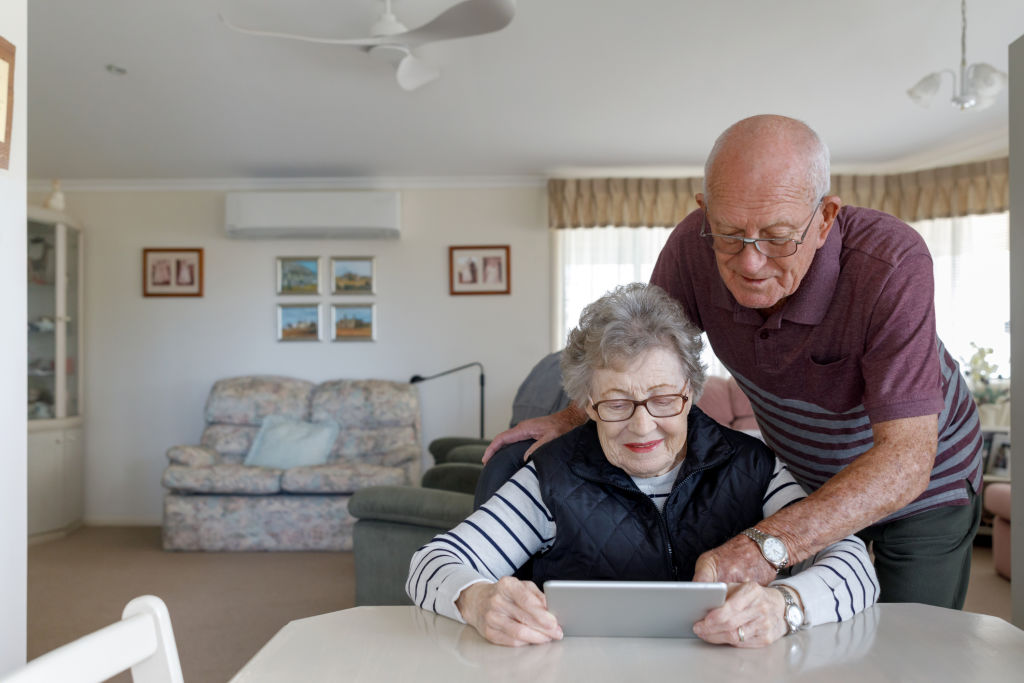How to persuade elderly parents and grandparents to stay home and out of infectious harm’s way

It’s fast emerging as one of the toughest challenges of the coronavirus crisis: how to persuade elderly parents and grandparents to stay home and out of infectious harm’s way.
This generation is tremendously hardy, often infuriatingly independent and just don’t like being told what to do by their youngers.
After all, they fought in wars, they remind us. They survived bombings, if not in Australia then in their earlier homelands. They’ve known bleak economic conditions and shortages before.
And, they say feistily, they’re a lot closer than most to the end of their lives, so what the hell?
So while the rest of us do our best to isolate, they’re the ones making daily trips to the newsagent to pick up a newspaper, having regular outings to supermarkets, chatting at close quarters with neighbours, going for walks in the parks and, yes, even going out for drives.
I called my own parents, aged 82 and 89, this morning. They were out.
“People have to sit their parents and grandparents down and explain to them in very, very clear and simple terms why it’s so important they stay at home,” said Cheryl Field, the editor of The Senior newspaper.
“The main thing is to stress how urgent it is, but not to scare the living daylights out of them so they spend their time in the house shivering with fear.
“Then we’re finding them falling into two camps, like any age group. There are some who’ll obey and others who’ll say, ‘I’m 80 and I’m going to go out and do what the hell I want’. There’s a lot of information going out online, but a lot of this group aren’t online.”
An Australian poll on March 24 found that a quarter of the 33 per cent of those who think the dangers of COVID-19 are being exaggerated are in the older age group.
Similarly, a just published Harris Poll in the US found that the population most at risk – the elderly with 80-year-olds and over having a 15 per cent fatality rate compared to the average rate of 2.3 per cent – are the least worried about catching the disease and dying, and are the least informed.
When we have so many older people around, making up one in seven of Australia’s population in 2017, according to the Australian Institute of Health and Welfare it’s critical to convince them to stay indoors.

“So you have to talk to older Australians and talk them through the steps and explain how contagious this is,” said Ian Henschke, chief advocate of National Seniors Australia. “You have to put forward a basic 101 on it to let people know how dangerous it is.”
That means pointing out how, with this virus, one person infects on average three other people and if those three infect another three, if that happens 10 times, 59,000 people end up infected.
“You have to tell them that, and how this virus lives on surfaces,” said Mr Henschke. “So it’s dangerous to go out and touch that supermarket trolley that someone infected has touched, or the bus seat where someone else has sat, and then touch your face. I talked to a bloke in his 80s yesterday who said he considered it a necessity to go to Bunnings.”
Aged Care Minister Richard Colbeck said we should all remind them of the importance of social distancing, too.
“Unfortunately, the highest rate of fatalities is among older people, particularly those with a weakened immune system,” he said. “While most senior Australians will follow the guidelines, loved ones should underline the importance of social distancing to those older family members who may still ignore the restrictions. We know the risk of serious illness and death increases with age.”
Many elderly people are doing the right thing, believes comedian Jean Kittson, who’s just brought out a new book We Need To Talk About Mum & Dad. But there are others who, for various reasons, aren’t doing the right thing.
It’s then important to talk to them about why they’re insisting on going out. “It might be that they think they’re being less of a burden by doing their own shopping, rather than sending someone else out into the virus zone,” she said. “They might be doing out of some misplaced sense of self-sacrifice.
“But then you talk to them about how they would be much more useful to the family if they don’t get sick or don’t spread it to others. Sometimes they’re not so concerned about getting it themselves because they’re elderly and they feel they’ve lived their lives, but they don’t want to give it to others.”
It’s not just the stick of scary warnings that should work with older parents and grandparents, however. There are also carrots to offer them to stay at home.

Younger members of the family could do their shopping for them, set them up for online deliveries and suggest they install Zoom or Skype or use Facebook’s Messenger for fun contact.
If they’re not tech-savvy, their family could use the remote connectivity platform TeamViewer to install apps for them. Playing Scrabble online against an unknown opponent can be a refreshing diversion.
We can also talk them into streaming services, particularly to watch some of the old shows they might be most fond of, or pay for it ourselves. And there are long-lost hobbies to take up again, photos to organise on their computers, or older ones to sort through and finally stick into albums.
“Social isolation may be very difficult for them,” said Ms Kittson. “So it’s important to help them through it. You might ring them twice a day and stay in touch, and reassure them as they may have already experienced a lot of loss, especially if they’ve lost a partner.
“That might sometimes work better than reading them the riot act.”
We recommend
States
Capital Cities
Capital Cities - Rentals
Popular Areas
Allhomes
More







